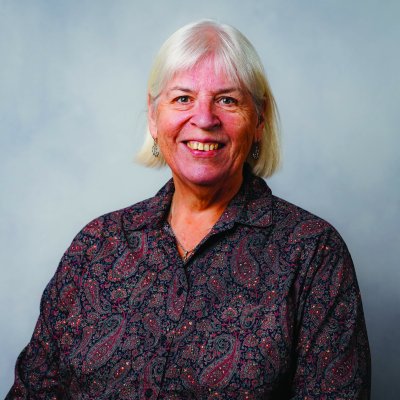Redeemer has been blessed by many different types of research grants over its 40 years, but as a small, privately funded university, federal research grants have not always been available or easy to obtain. In 1999, Redeemer was finally recognized by all three federal research granting agencies, known as the Tri-Council, which allowed Redeemer students and faculty to apply for various federal grants to assist in completing research.
The three Tri-Council agencies are the Natural Sciences and Engineering Research Council (NSERC), the Social Sciences and Humanities Research Council (SSHRC) and the Canadian Institutes of Health Research (CIHR). While no Redeemer faculty has yet applied for grants from CIHR, Redeemer students and faculty members have been successful recipients of NSERC and SSHRC research grants for a wide variety of impressive topics over the years, from person-centred care in dementia services to machine vision for telerobotic applications.
Redeemer's longest-standing NSERC grant holder is Dr. Kevin Vander Meulen, professor of mathematics. When he first applied in 1997, Redeemer was not yet eligible for NSERC grants, so he applied successfully through McMaster University, as an adjunct faculty member there. Since 2002, he has consistently held NSERC grants hosted by Redeemer.
I was pleasantly surprised that first summer and I've been blessed with excellent research students every summer since.
"Oftentimes people think everything is known in mathematics," says Vander Muelen. "It's not like that at all. There's plenty of new mathematics going on every day."
Vander Meulen compares his mathematical research to a biologist trying to understand an organism's structure. In a similar way, he looks at properties of mathematical structures, examining what properties they have or don't have. One technique involves exploring how one mathematical structure relates to another, such as relating graphs to equations. In a matrix equation or system of equations, sometimes there is incomplete information due to limited data. He explores problems in which exact data values are not known, but some information is known, such as whether the values are negative or positive. One goal is to determine what can be predicted about what's possible for the long-time behaviour of the system even with this limited information.
Vander Meulen is grateful to have had access to research funds for so long, particularly because of the benefit they provide to Redeemer students. He initially wasn't sure if undergraduate students would be able to contribute significantly to mathematical research, but hoped it would at least be a good experience for them.
"I was pleasantly surprised that first summer. I had two students who developed ideas that contributed to published research," he says. "And I've been blessed with excellent research students every summer since."
Popular Stories
Within the past three years, there have been three Redeemer mathematics alumni, all former undergraduate researchers sponsored by NSERC, who have obtained a PhD in mathematics, namely Jonathan Earl, Moriah Pellowe and Brydon Eastman.
Dr. Darren Brouwer, professor of chemistry, also has an impressive history with successful NSERC grant applications, most recently in 2016 being awarded $180,000 over six years. Brouwer, along with numerous Redeemer students, is working to develop new methods for determining the molecular-scale structures of materials using a technique called nuclear magnetic resonance (NMR) spectroscopy to determine material structures at the molecular level. NMR spectroscopy, a close cousin to magnetic resonance imaging (MRI) that many are familiar with in a medical context, is a powerful tool for uncovering the structural features of materials.
it was very exciting to discover there is a lively Christian higher education academic world in the humanities.
Another of Redeemer's long-time grant holders, Dr. Deborah Bowen, professor emerita of English, has also been pleased to be able to work with a range of students on her SSHRC-funded work. While completing leaflets for her poetry and ecology project she worked with an art student on design, three English students and an environmental science student on content, and a business student on distribution.

Dr. Deborah Bowen, professor emerita of English
Bowen, who continues to teach at Redeemer part time, was initially successful in obtaining SSHRC grants as part of larger group projects in the '90s, but as her career progressed, she wanted to try for one of her own. Despite the highly competitive and labour-intensive process, she has twice since been successful, most recently in 2020 for her project Poetry in Place: Poetry and Environmental Hope in a Southern Ontario Bioregion.
She's been pleased to be able to work with both Christian and secular writers, poets and academics in her work, using her gifts and talents to complete numerous scholarly articles and present more than 80 papers at both Christian and secular conferences during her time at Redeemer.
"I found that it was possible to have a Christian voice in the public academy as long as I did my work really carefully and well, as well as having a voice in the Christian academy," says Bowen. "And it was very exciting to discover there is a lively Christian higher education academic world in the humanities."













